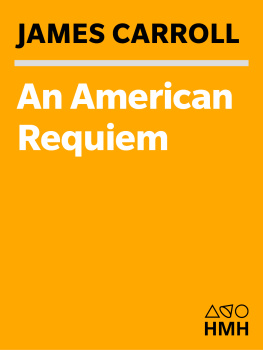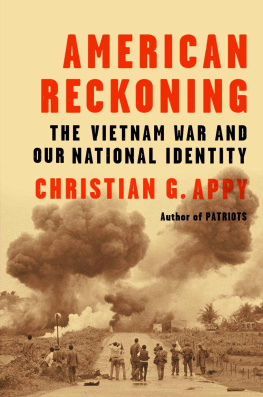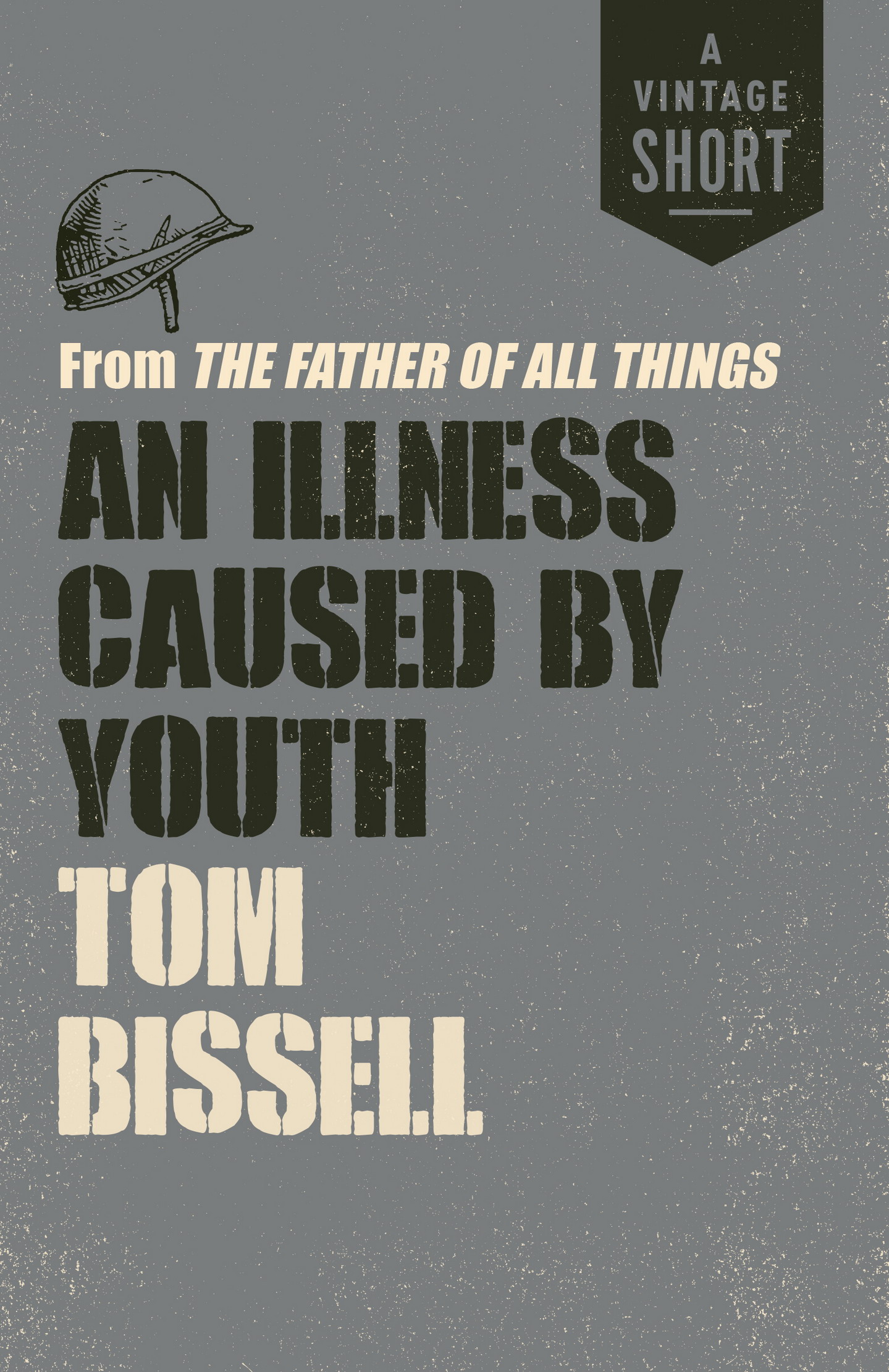Tom Bissell was born in Escanaba, Michigan, in 1974. He is the author of nine books, many of which are available in Vintage paperback editions, and has been awarded the Rome Prize, a Guggenheim Fellowship, and a Writers Guild of America Award. Two of his short stories were adapted into the feature films The Loneliest Planet (directed by Julia Loktev) and Salt and Fire (directed by Werner Herzog). The Disaster Artist (cowritten with Greg Sestero) was adapted into a feature film by James Franco. He lives in Los Angeles with his partner, Trisha Miller, and their daughter, Mina.
An Illness Caused by Youth
from The Father of All Things
Tom Bissell
A Vintage Short
Vintage Books
A Division of Penguin Random House LLC
New York
Copyright 2007 by Thomas Carlisle Bissell
All rights reserved. Published in the United States by Vintage Books, a division of Penguin Random House LLC, New York, and in Canada by Random House of Canada, a division of Penguin Random House Canada Limited, Toronto. Originally published in hardcover as a part of The Father of All Things in the United States by Pantheon, a division of Penguin Random House LLC, New York, in 2007.
Vintage and colophon are registered trademarks of Penguin Random House LLC.
The Cataloging-in-Publication Data for The Father of All Things is available from the Library of Congress.
Vintage eShort ISBN9780525436621
Series cover design by Cardon Webb
www.vintagebooks.com
v4.1
a
Contents
My father, it was your sad image,
so often come, that urged me to these thresholds.
My ships are moored on the Tyrrhenian.
O father, let me hold your right hand fast,
do not withdraw from my embrace.
VIRGIL, THE AENEID
While sitting next to my father on the All Nippon Airways flight from Tokyo to Ho Chi Minh City, I finally grasped what had been bothering me. It was not the odorlessness of the processed cabin air, or the tidally sustained roar of the engines, or even the handful of tranquilizers I had gobbled. What bothered me was the increasingly unsettling sensation of simply being beside my father. Somehow he made me feel physically diminished. Perhaps fathers could not help but make their sons feel smaller. What was a father if not the one man who would always wield power over his son? One did not have to love (or even like) ones father to sense this essential inequality. I loved my father very much, but I was suddenly a little too reminded of him, which is to say, a little afraid.
I studied the hairy hands that held open the Vietnam guidebook I had bought for him: thick fingers, big knuckles, huge glossy nails. I then regarded my fathers head. It seemed something out of a circus tent. I could not even look at it all at once. His round, wet eyes, Kilimanjaran nose, lost-cavern nostrils, and geological chin dimple belonged to separate facial ecosystems. The westernmost edge of the United States mainland was eleven hours behind us, and his striking physiognomy occurred to me now because during the previous legs of our trip I had been seated one row ahead of my father, not next to him. I had also tired of the book I had brought aboard and was actively searching for something to think about, since, while flying, if I was not vigilant, my thoughts tended toward the macabre, such as, for example, the imminence of my own death.
Maybe all I really felt was simple filial humility. I recalled the famous schoolyard question: Can God create a boulder so large that even he cannot move it? Similarly, could a child ever feel bigger than his parents? I was not thinking of size. Rather, could a child feel existentially bigger? I did not believe so. I doubted it. And with that the various sleep aids I had ingested began, once again, to bring on the ugly process of manufactured sleep: eyelids as heavy as anchors, mind blown out like a candle, head in free-fall.My nose smooshed hard against my fathers shoulder. I sparked upright.
My father adjusted himself in his seat, still reading. Then, in an instructive singsong voice: If you sleep now youre going to spend the first few days completely jet-lagged.
Moments before our first flight this morning, I had taken an Ativan, an antianxiety medication. I took another Ativan right after we lifted off. A few hours later I took another. In Tokyos airport I washed down another with a Diet Coke. I had taken a Sominex about an hour ago. I had also drunk a Sapporo. None of this was so I could sleep. The odds of my falling asleep on an airplane were cosmologically long. The reason I had taken the pills was to relax.
I was now touching my head with fascination. I think my hair has lost its curl.
My father looked over at me and asked, almost fondly, How can anyone who travels as much as you be so afraid of flying? Its ridiculous.
Of course its ridiculous. All pathological fear is ridiculous. Its not as though Im afraid of much. Flying, sharks, snakes. The classics.
My father shook his head, the overhead light igniting around his head a dandruffy nebula. Thankfully, he changed the subject. Do you know that today is the Marine Corpss two-hundred-and-twenty-eighth anniversary?
No kidding?
A single nod. November tenth.
Are you thinking this is a good omen or a bad omen?
Im not thinking anything. I just thought it was a neat coincidence.
He returned to his reading. I stared out my window at a moon so close and bright I could count the dark wrinkles around its craters. Flying to Vietnam on the 228th anniversary of the United States Marine Corps: a neat coincidence, indeed. While growing up, I had associated nearly everything about my father with the Marine Corps and Vietnam.
There were two types of Vietnam veteran: those who talked about the war and those who did not talk about it. My father talked about the war, though, if anything, this only deepened the abyss between us. I had learned something from discussions with those who had veteran fathers. This was that our fathers seemed remote because the war itself was impossibly remote. Chances were, the war had happened pre-you, before you had come to grasp the sheer accident of your own placement in time, before you recognized that the reality of yourselfyour bedroom, your dolls and comic bookshad nothing to do with the reality of your father. This strange, lost war, simultaneously real and unimaginable, forced us to confront the past before we had any idea of what the past really was. The war made us think theoretically long before we had the vocabulary to do so. Despite its remoteness, the wars aftereffects were inescapably intimate. At every meal Vietnam sat down, invisibly, with our families.
Inspired, I pulled out my handheld tape recorder. Hold on. Id like to get some stuff down. I pushed the plastic brick toward my fathers mouth.
His dubious eyes took their time traveling from me to the tape recorder before they returned to his guidebook. All right.






